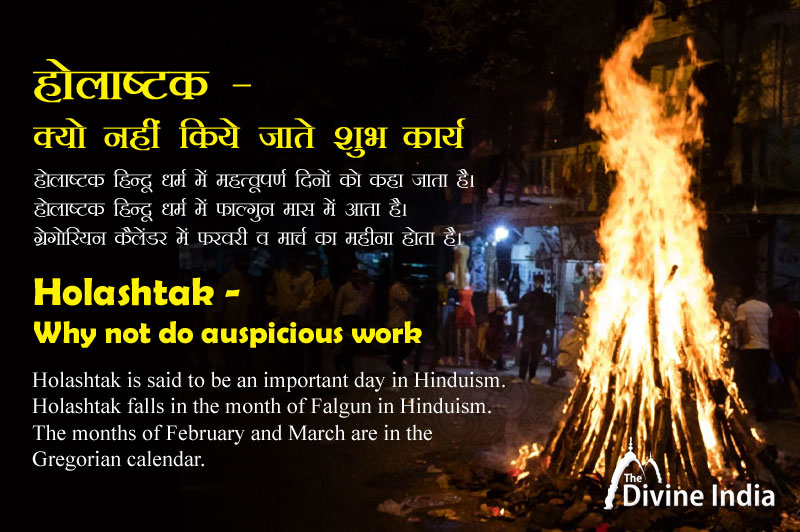


Holashtak is said to be an important day in Hinduism. Holashtak falls in the month of Falgun in Hinduism. The months of February and March are in the Gregorian calendar. Holashtak is made up of two words, Holi and Ashtak i.e. a festival of 8 days. The eight days before the Holi festival are called Holashtak. It can be said that the first information about the arrival of Holi festival is received from Holashtak itself. With the Holi festival in Holashtak, the preparations for Holika Dahan also start.
No auspicious work is done on the days of Holashtak. It can be said that 8 days of Holashtak are considered inauspicious. Therefore, during this time no auspicious work is done like marriage, engagement, home entry, purchase of a new house, purchase of vehicle, land worship, start of new business etc.
No auspicious work is done in Holashtak. There is a famous legend related to this, why auspicious works are not done in the days of Holashtak -
According to the legend, Kamadeva had broken the penance of Lord Shiva at the behest of Lord Indra and being angry with this, Lord Shiva had burnt Kamadeva, the god of love with his third eye, on the Ashtami date of Falgun. Kamadeva's wife Rati worshiped Shiva for 8 days and prayed to revive Kamadeva which was accepted by Lord Shiva. Due to this tradition, these 8 days are considered taboo for auspicious works.
According to the legend, King Hiranyakashipu had tormented his son Prahlad during these eight days to turn his son Prahlad away from his devotion to Lord Vishnu. On the eighth day, Holika, the sister of Hiranyakashipu, had a boon that she could not be burnt by fire. But when Holika, taking the devotee Prahlad in her lap, sat in the fire and got burnt. By the grace of Lord Vishnu, the devotee Prahlad was saved from the fire. Therefore, no auspicious work is done during these 8 days.